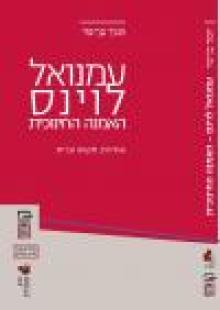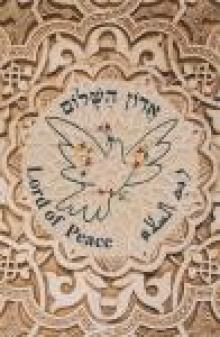Publications
-

Emmanuel Levinas - educational contract: responsibility, hope, and alliance
SummaryThis book proposes a reading of Emmanuel Levinas’s philosophical thought on education. In this way, it is neither a biographical essay on Levinas the educator nor an examination of Levinas’s educational methods, two subjects that have been addressed elsewhere, but rather an attempt to identify and engage with the thinking on education that emerges from Levinas’s writings and philosophical thought. The challenge which Levinas poses to the reader, the scholar, and the educator is particularly interesting because of the manner in which he engages with modern philosophical thought, ethics, and epistemology (the theory of consciousness); the world of Jewish sources, including the Talmud and Medieval Jewish thought; and the concrete field of education. Levinas teaches us the significance of the encounter between individuals – between teachers and their students – in the challenging and obligating educational act. Ultimately, he shows us the innovation and the sublime, living, and productive nature that is unique to the realm of teaching and learning.
Levinas’s philosophy of education is a fascinating phenomenological inquiry into the meaning of parenthood, childhood, knowledge, hope, and messianism. It is a philosophy of responsibility toward the Other and awareness of the complexity of assuming this responsibility. His thinking ranges from the ethical imperative of respecting the uniqueness and alterity of the Other to the establishment of a new learning community that bears responsibility for its surroundings. Levinas ascribes ethical and moral importance both to learning and to the recognition of knowledge that lies beyond the learner’s reach. The commandment to ‘do good’ and the demand to
bear responsibility emerge from a philosophical reading of Levinas in the full theoretical and intellectual richness of the individual’s standing as a person, a teacher, or a student. Contemplating Levinasian philosophy from an educational perspective is ethically challenging, and its actualization in the educational realm is a profoundly rigorous undertaking that precludes even momentary relief or respite. Indeed, from a Levinasian perspective, the ethical demand on the educator is infinite. From this perspective, institutional regulations, including the regulations of different education ministries and students’ rights charters, appear to be no more than a relief of sorts as opposed to the demand for infinite responsibility which, in the eyes of Levinas, is borne by the educator.
Levinasian philosophy has two gazes: one that engages general philosophy and the universal questions of the field of education, and another, stemming from Levinas’s devout interest in Jewish sources, that looks inward into Jewish education. This book examines the issue of education question from an ethical perspective, with an emphasis on the new meaning assigned to Jewish education based on the ethical interpretation of the educational act.
Levinas’s philosophical discourse engages many close and distant circles, conducting a dialogue with Franz Rosenzweig and Martin Buber on the essence of Jewish education, and a profound and meaningful exchange with the world of phenomenology, with implications pertaining to the act of education itself. This dual discourse requires consideration of the relationship between these two worlds of particularism and universalism. However, at the end of the reading proposed in this book, we also discover in Levinas’s philosophy of education a new, largely political meaning that enables a fresh understanding of the concept of covenant – as an innovative type of social contract based on education and learning.
-

Lord of Peace
SummaryLord of peace: a prayer book for peace according to Jewish, Christian and Islamic tradition : to pray to the lord of peace daily, morning and evening may all who use it be merry and in good heart
Not by might, nor by power, but by My spirit, saith the LORD of hosts (Zechariah 4: 6). It is privilege and a thrill to present to you Lord of Peace, a prayer book for peace according to the Jewish, Christian, and Islamic tradition. This prayer book was born out of years of spiritual inter-faith dialogue for peace initiated by Derekh Avraham, the Israeli Sufi Path, led by
myself and my comrades in peace, Rabbi Roberto Arbib and Shaikh Ghassan Manasra. Renew our days as of old (Lamentations 5: 21). Lord of Peace
echoes the dialectics between conservatism and revolution. Its prayers have been selected conservatively, most of them being flowers picked from the colorful garden nurtured by the three religions in times past. However, it is revolutionary in the history of religions and is in a way unparalleled by any historical precedent. What is revolutionary about the prayer book you hold, however, is that it includes a collection of prayers for peace routinely offered by the sons and daughters of the three monotheistic religious traditions: Judaism, Christianity, and Islam.
For whom the LORD loveth he correcteth (Proverbs 3: 12). Great love do I bear for righteous, orthodox people of all three Abrahamic religions. But this love shall not hold me back from giving voice to my rage against the falsity, the void to which I bear witness these days.
The Talmud says, “He who studies the Law for the honor of God, his knowledge becomes to him the elixir of life [...] but he who studies the Law, not for the honor of God, his knowledge becomes to him a deadly poison.” (Babylonian Talmūd, Ta‘anīt, trans. M.L. Rodkinson.)
But I say unto you, Love your enemies, bless them that curse you, do good to them that hate you, and pray for them who despitefully use you, and persecute you; That you may be the children of your Father who is in heaven: for he makes his sun to rise on the evil and on the good, and sends rain on the just and on the unjust.
(Matthew 5: 44-45)
Seek peace, and pursue it.
(Psalms 34, 15)
Certainly, there has come to you a light from Allah, and a manifest Book. With it Allah guides those who follow [the course of] His pleasure to the ways of peace, and brings them out from darkness into light by His will, and guides them to a straight path
(Sūrat al-Māʾidah 5: 15-16)



